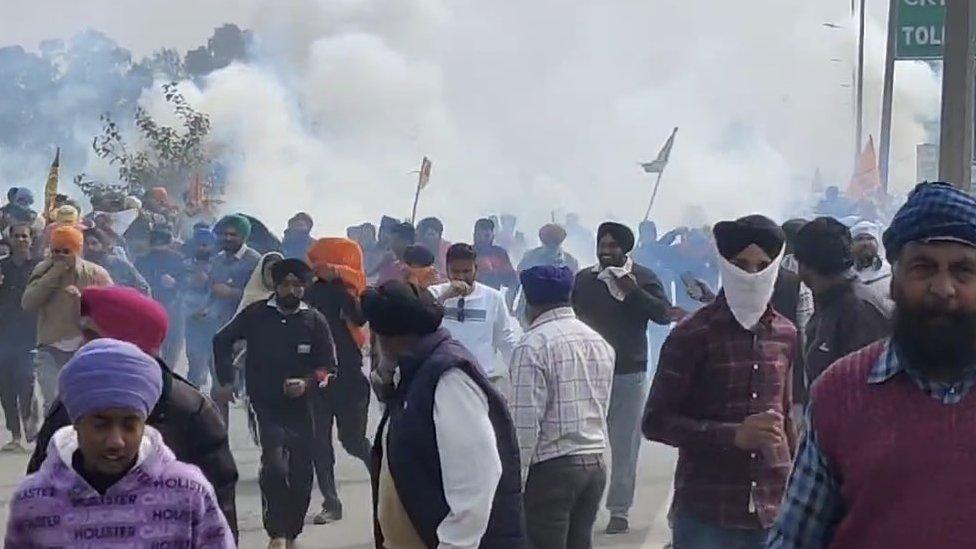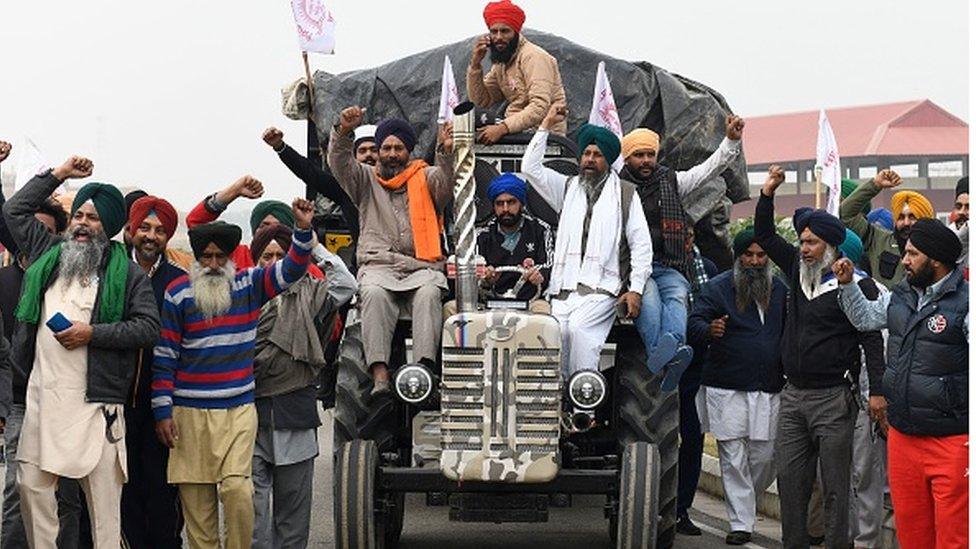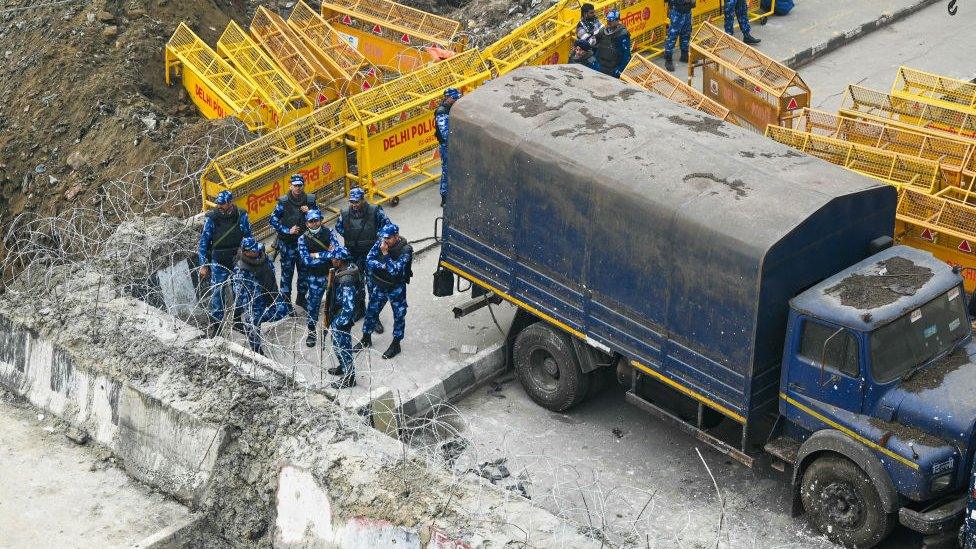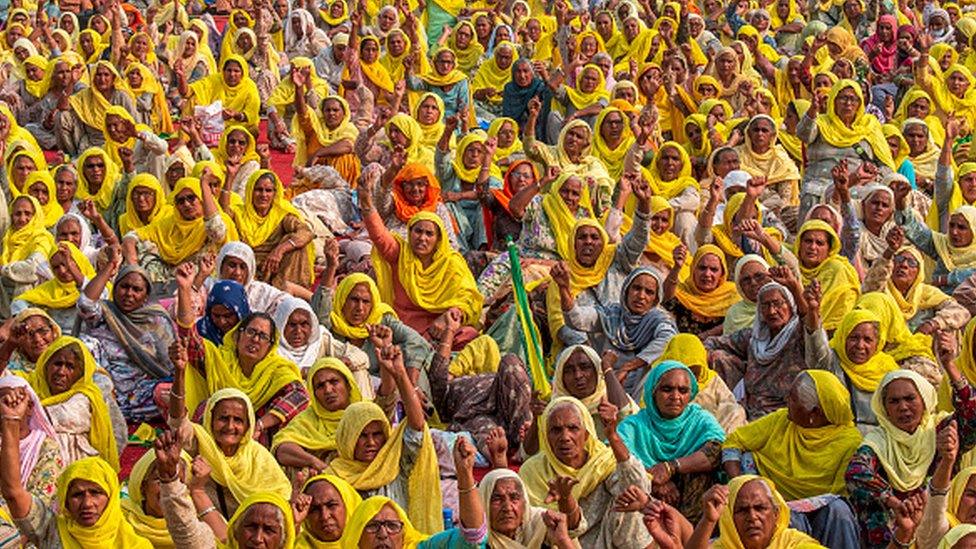Why India farmers are protesting again
- Published

Farmers are demanding that their produce be procured at a reasonable minimum price
Two years after Indian farmers ended their massive protest, they are back on the streets demanding guaranteed prices for their crops.
Thousands of farmers are marching towards Delhi while authorities have turned India's capital into a fortress, barricading it with razor wire and concrete blocks to try to keep demonstrators at bay.
Farmers began a year-long protest in 2020 against the government's move to introduce controversial agricultural reforms.
Thousands camped at the borders of the capital with dozens dying from heat, cold and Covid.
The movement became one of the biggest challenges for Prime Minister Narendra Modi's government.
Farmer groups called off their strike after the government scrapped the proposed farm laws in 2021 and agreed to discuss their other demands, including guaranteed prices for produce and a withdrawal of criminal cases against the protesters.
The farmers are now back, saying they want to remind the government of the promises made back then.

Farmers say they will go back home after more than a year of protests
What was the 2020 protest about?
It was against three proposed laws that loosened rules around sale, pricing and storage of farm produce - rules which have protected farmers from the free market for decades.
Farm unions said these laws would leave farmers vulnerable to big companies and destroy their livelihoods.
After months of insisting that the reforms would benefit farmers, Mr Modi announced that his government would repeal the laws on 19 November 2021. A few days later, the parliament passed the bill to cancel the reforms.
The move was hailed as a victory for farmers and also as a powerful example of how mass protests could still successfully challenge the government.
But farmers did not leave the protest sites immediately and continued to protest until the government gave them a formal letter, accepting many of their other demands.
The government also agreed to provide compensation to the families of the farmers who died during the protest.
On the demand for a minimum support price, the government promised to form a committee which would include representatives from the federal and state governments, agriculture scientists and farmer groups.

Security personnel barricade the Delhi borders ahead of farmers' protest
What are the farmers demanding now?
The farmers say that the government has not kept the promises made during the 2020-21 protest. They are also demanding pensions and have asked the government to waive their debts.
Farmers have said that those who sell fake seeds, pesticides and fertilisers should be penalised. They want the government to double the number of work days under rural employment guarantee scheme to 200.
The protesters also want India to withdraw from the World Trade Organisation (WTO) and scrap all free trade agreements.

The 2020 protests posed one of the biggest challenges to Narendra Modi's government
Why are the protests important?
Farmers form the most influential voting bloc in India and analysts say the government would not want to rub them the wrong way just weeks before India holds general elections.
The farmers' march has brought back memories of the chaos which prevailed in India's capital during their first protest - bringing life around Delhi's borders to a standstill for months on end.
Mr Modi's government has so far held two new rounds of talks with the farm leaders. However, the farmers called the talks "delaying tactics" and refused to call off their protest.

Read more India stories from the BBC:
